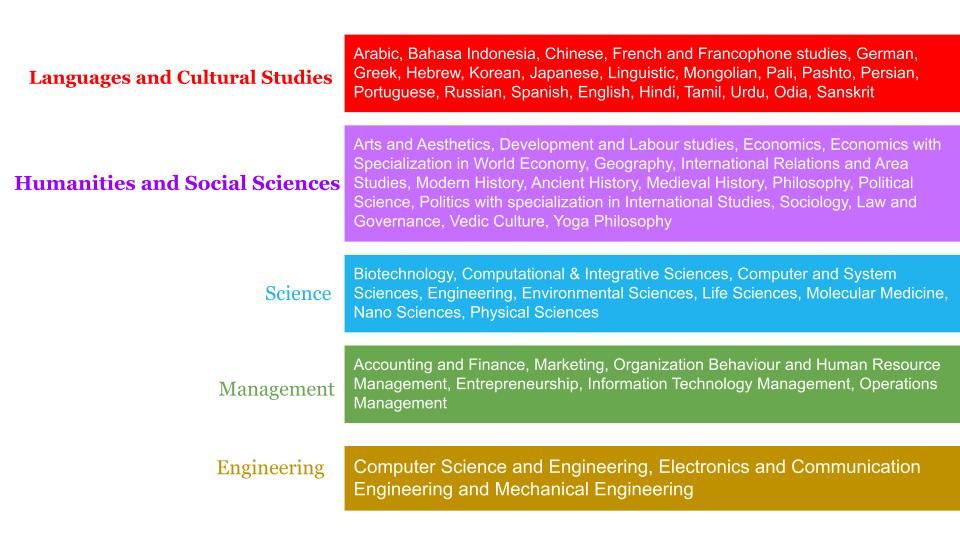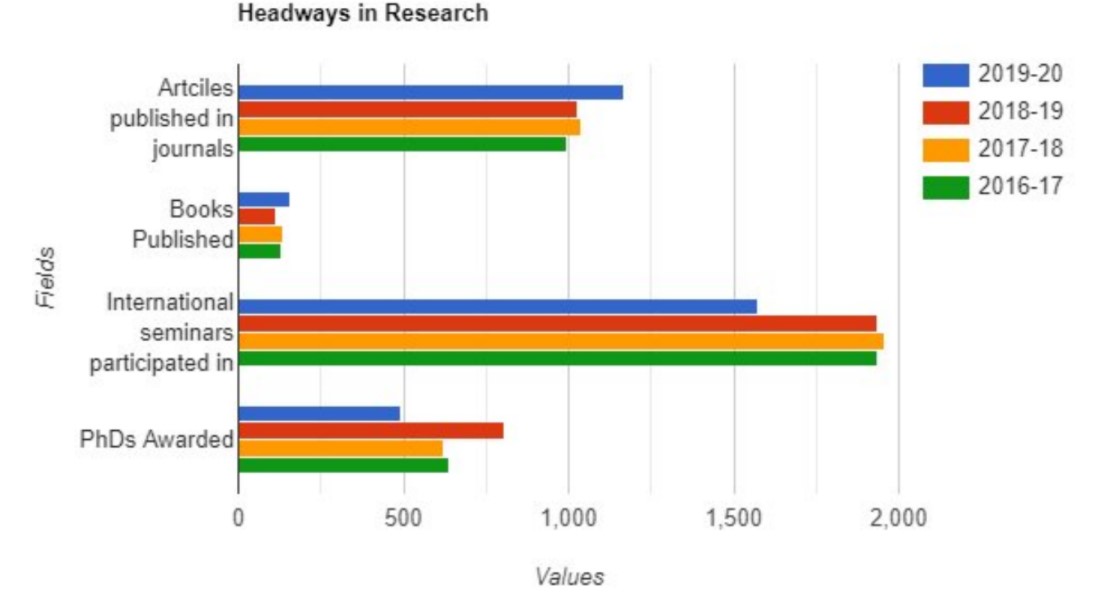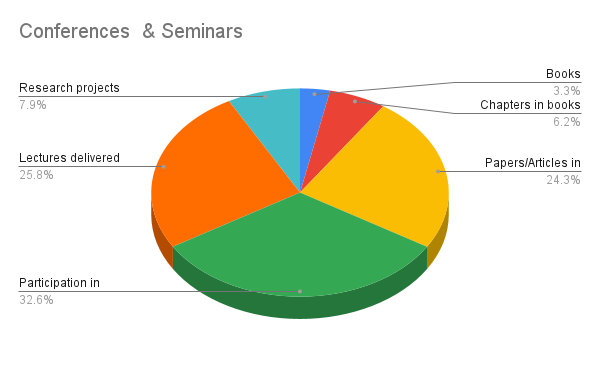Jawaharlal Nehru University, established in 1969, is a vibrant campus. The university has an area of about 1000 acres and currently more than 9,000 students are studying in various disciplines. JNU believes in creating new heights in every field of education and in nurturing social awareness among students. It has 13 Schools, 38 Centers and 8 Special Centres to provide quality education. The School of Language, Literature and Cultural Studies (SLL&CS) trains students not only in the languages but also in the overall socio-cultural and political aspects of respective countries. The School Of Engineering offers a B.Tech+Mtech/MS dual degree 5 year course as well. B.tech + M.tech is offered in Computer Science & Engineering and Electronics & Communication Engineering. The Atal Bihari Vajpayee School Of Management currently offers MBA programme. The School of International Studies (SIS) is responsible for providing an overview of world politics and their influence on world society. JNU is well-known for path-breaking research in various disciplines, and has always encouraged students towards innovation and transformation in different sectors corresponding to different schools such as School of Social Sciences (SSS), Physical Sciences (SPS), Life Sciences (SLS), Environmental Sciences (SES), Computer and Systems Sciences, Biotechnology (SBT), Special Centre for Microbiology, Special Centre for Molecular Medicine and Nanoscience, etc. more...
JNU is recognized as a premier institution in the country that has proven its all-around academic excellence and unmatchable commitment towards diverse and relevant research subjects.
The extensive courses and the avant-garde facilities in JNU are designed to cater to the world-class academic training and creating a free space for critical thinking, dialogue, shared growth and achieving full potential of students as responsible individuals. JNU offers various disciplines in Science, Humanities and Languages. JNU aesthetically comprises of 13 schools that have 38 centres, 8 special centres, the state of the art labs including language labs that are well-equipped with the latest technology, state of the art library, seminar halls and highly advanced auditoriums. Stemming from the roots of historical ideals and modern civilization, JNU is a true amalgamation of critical thinking, interdisciplinary dialogue, and exemplary research institution that makes it incredibly successful in producing top class personalities in a diverse array of fields, be it bureaucrats, scientists, professionals or public figures.
| Name of School/ Special Centre | Course Offered | Total no. of Students | Areas |
|---|---|---|---|
| Atal Bihari Vajpayee School of Management and Entrepreneurship (ABVSME) | MBA, PhD | 53 | Management |
| School of Art and Aesthetics (SAA) | MA, PhD | 197 | Cinema, Visual and Performing Arts |
| School of Biotechnology (SBT) | M.Sc., PhD | 117 | Biotechnology |
| School of Computational and Integrative Sciences (SCIS) | M.Sc., PhD | 115 | Computational Biology, Bioinformatics |
| School of Computer and System Sciences (SCSS) | MCA, M.Tech., PhD | 206 | Computer and System Sciences |
| School of Engineering (SoE) | B.Tech. + M.Tech. Dual Degree, PhD | 317 | Computer Science and Engineering, Electronics and Communication Engineering, Mechanical Engineering |
| School of Environmental Studies (SES) | M.Sc., PhD | 189 | Environment |
| School of International Studies (SIS) | MA, PhD | 1306 | Canadian, US, Latin American, European, East Asian, Russian, Central Asian, South Asian, Indo-Pacific, Inner Asian, African, and West Asian Studies, Study of International Trade, Politics and Legal Systems |
| School of Language, Literature and Culture Studies (SLL&CS) | BA, MA, PhD | 2810 | Language Study such as Persian, Arabic, African, Japanese, Korean Chinese, French, German, Indian, English, Russian, Portuguese, Spanish, Italian, Latin American |
| School of Life Sciences (SLS) | M.Sc., PhD | 205 | Biology |
| School of Physical Sciences (SPS) | M.Sc., PhD | 230 | Physics, Chemistry, Mathematics |
| School of Sanskrit and Indic Studies (SSIS) | MA, PhD | 316 | Sanskrit, Pali, and Prakrit Studies, Indian Philosophy, Ayurveda, Computational Sanskrit |
| School of Social Studies (SSS) | MA, PhD | 2455 | Economics, History, Political Studies, Social Systems, Science Policy, Labor Studies, Philosophy, Media Studies |
| Centre for the Study of Law and Governance (CSLG) | PhD | 91 | Law |
| Special Centre for Disaster Research (SCDR) | MA, PhD | 43 | Disaster Management |
| Special Centre for Molecular Medicine (SCMM) | M.Sc., PhD | 75 | Molecular Biology |
| Special Centre for Nano Sciences (SCNS) | M.Tech., PhD | 57 | Nanotechnology |
| Special Centre for National Security Services (SCNSS) | PhD | 57 | National Security |
| Special Centre for the Study of North East India (SCSNEI) | PhD | 32 | Study of North East |
As one of the top hubs for research, the coursework in JNU gives the students an in-depth and well-rounded knowledge, both theoretical and empirical. It helps studnets to develop a multifaceted personality, interdisciplinary in nature and mould them to follow an all-inclusive approach in a wide range of situations. The disciplines and the number of students pursuing various courses in Science, Humanities, and Languages are presented below. Click here for more details...

JNU campus is a microcosm of the Indian nation, drawing students from every nook & corner of the country and beyond. There are more than 9000 students enrolled in different courses in JNU, out of which more than 50% are in M.Phil./Ph.D. programmes, more than 25% are in Masters programmes, about 15 % are in the Bachelors programmes, and the rest are in Diploma in foreign languages, and Certification Courses in Yoga, Vedic Culture , Sanskrit, Sanskrit Computational Linguistics. Recently, JNU has also started an integrated B.Tech.-M.S. programme.

There are about 200 DIVYANG students in the campus, out of which more than 25% are female students. JNU runs the HEPSN (Higher Education for Persons with Special Needs) UGC scheme to create awareness among the functionaries of Higher Education about specific educational needs of individuals with disabilities. Some of the facilities available to DIVYANG students are Helen Keller Unit (Specialized with audio-visual assistive technologies), JNUPDA-Assistance with Jobs and Fellowships, Specialized Counselling services, etc.

JNU covers a large number of interdisciplinary fields spread among various Schools and Special Centres. A number of research projects are being carried out across a broad range of disciplines of Languages, Humanities, and Sciences, in collaboration with various institutions and organizations at both national and international levels. Every year JNU awards hundreds of MPhil and PhD degrees, indicating the quality and magnitude of research in the university.

JNU organizes a large number of conferences, seminars and workshops every year. JNU collaborated in 1544 (64%) National and 415 (17%) International conferences, and organised 454 (19%) National and International Conferences/Seminars.

JNU has not only established itself as a leader in the country, but has also earned a name for itself far beyond the country by extending hands of collaboration with highly reputed international universities. JNU has MOUs with several universities from other countries that include USA, UK, Japan, Korea, Germany, Canada, France, etc. Being the hub of students from all over the world, JNU provides students exposure to cultures and discourses from around the world.
JNU offers a holistic learning environment and a diversity of interdisciplinary courses that prepare students to take up jobs in various institutions and organizations ranging from think tanks, political and social agencies, academic institutions to corporate sectors, PSUs, etc. The JNU Placement Cell (JNUPC) actively works in conducting workshops, placement camps, and trade fairs with the aim of bringing the recruiters and students under one roof. Many of our alumni placed in various sectors around the globe have time and again brought laurels to the university. With regard to the Placement statistics of various schools over the last five years, the data shows that students are majorly placed in Academics, R&Ds, and Corporates.